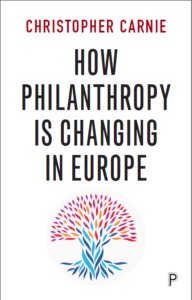Prospect researchers are at the nexus of a storm between five government agencies. Thanks to the monetary penalties imposed by the Information Commissioner in December 2016 on two leading charities we can now see the extent of the battlefield.
In one corner is the Information Commissioner’s Office, ICO. In its press release announcing fines for the RSPCA and the British Heart Foundation, ICO condemned the use of “information from publically[sic]-available sources to investigate income, property values, lifestyle and even friendship circles.”
This appears to put the ICO in direct opposition to the Charity Commission. In a series of papers entitled ‘The Compliance Toolkit’ the Commission reminds charities that they have a duty to check on donors and potential donors. Tool 6 in the suite is called ‘Know Your Donor’, and here the Charity Commission asks;
“Have any public concerns been raised about the donors or their activities? If so, what was the nature of the concerns and how long ago were they raised? Did the police or a regulator investigate the concerns? What was the outcome?”
How would you find out whether “public concerns” have been raised, if you did not use “publically-available sources”?
You simply have to use newspapers, government sources, and a search engine if you are to find out whether public concerns have been raised. There is no other way. And of course the Charity Commission says so, recommending that “full use should be made of internet websites” to check donors.
Your duty
The Commission goes further, and reminds trustees that “…if the trustees have reasonable cause to suspect that a donation is related to terrorist financing, they are under specific legal duties under the Counter-Terrorism Act to report the matter to the police. In the case of money laundering, reports can be made to the police, a customs officer (HMRC), or an officer of the National Crime Agency.” The Commission suggests a threshold for reporting – donations of £25,000 or more.
But we are not done yet. Because if you have the slightest suspicion that the donor may be a bit iffy, the Charity Commission requires you to “…check the donor against the consolidated lists of financial sanctions targets and proscribed organisations.”
Gosh.
That means this list.
The list contains 8,885 names of individuals who are under sanctions. It includes their date and place of birth, their passport or ID number, and a biographic note such as “Manager of the branch of Syrian Scientific Studies and research Centre.”
That is personal information held in the public domain, that the Charity Commission requires us to review.
The Libya Connection
Why are four government agencies – the Police, HMRC, the National Crime Agency and the Charity Commission – interested in these checks?
In part, the story is linked to the London School of Economics, and the controversy over a gift from Libya. The result of the controversy was the Woolf Inquiry, which published its report in October 2011.
After a detailed study of the history of this gift, Lord Woolf made a series of recommendations on accepting funds from “less well known” high-value philanthropists including an inquiry into the sources of their funds (p. 69) and a thorough due diligence assessment (p. 22).
These searches are only possible with public domain information.
Catch-22
Under questioning at last year’s CASE conference, ICO spokesperson Richard Marbrow did allow that we could use public domain information for due diligence purposes. But he went on to say that this same information could not be used for assessing gift capacity because that would be an “incompatible purpose” for the use of data.
But that leaves us prospect researchers in Catch-22.
I cannot carry out full due diligence on all my prospects. To do so would be a scandalous waste of charity resources. The Charity Commission suggests that the threshold should be £25,000. So if I am to decide that Mrs A or Mr B must be checked via due diligence…I have to assess their gift capacity.
To do that, I need the help of a fifth government agency, Companies House.
Open for Business
Mr Marbrow cited Companies House various times during 2016, telling fundraisers and prospect researchers that because the information in Companies House was collected for one purpose – regulation – it could not be used for another – prospect research.
What does Companies House say? Here is their July 2014 press release*
“Companies House is to make all of its digital data available free of charge. This will make the UK the first country to establish a truly open register of business information.
As a result, it will be easier for businesses and members of the public to research and scrutinise the activities and ownership of companies and connected individuals. … This is a considerable step forward in improving corporate transparency…
It will also open up opportunities for entrepreneurs to come up with innovative ways of using the information.”
So, Companies House wants us to “research and scrutinise the activities and ownership of companies and connected individuals,” and to find “innovative ways of using the information.”
The Battle for Philanthropy
Prospect researchers are caught in the centre of a battlefield between government agencies, between “innovative ways” of using information, terrorism legislation, due diligence and privacy.
We must defend our corner of this bloody battlefield.
We need our friends in fundraising and philanthropy, in Parliament and in civil society, to support the sensible, ethical, managed use of public domain information in the search for philanthropists.
*I am grateful to a colleague at a leading University for pointing this out.
Chris Carnie is the author of “How Philanthropy is Changing in Europe”, published by Policy Press. He writes in a personal capacity.

